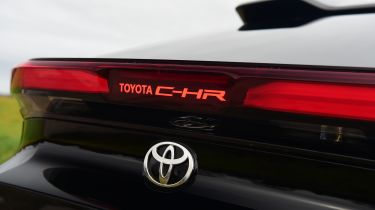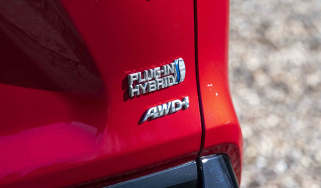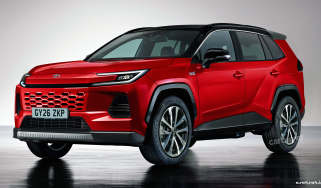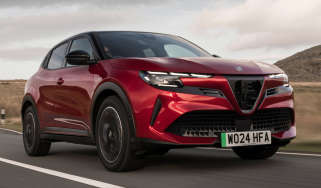Toyota C-HR review – Reliability & safety
“Likely to prove reliable and safe, but some of the active safety kit is overly sensitive”
The signs are promising that the C-HR should prove reliable. Despite being on the market for a number of years, the outgoing model was still ranked in a respectable 25th position out of the top 75 models in our 2023 Driver Power owner satisfaction survey, with solid scores for build quality and reliability. Toyota also performed fairly well, coming 12th out of 32 manufacturers overall, and a strong fifth for reliability, with only 15% of owners reporting a first-year fault – compared to 19% and 27% for Peugeot and Volvo respectively.
There's added reassurance thanks to Toyota's long warranty, which can last for up to 10 years – so long as you don't mind keeping it serviced by Toyota.
How safe is the Toyota C-HR?
Toyota doesn’t skimp on safety kit either, with every trim level getting features like autonomous emergency braking (AEB) and blind-spot warnings as standard, along with kit like automatic high-beam headlights, road-sign warnings, adaptive cruise control and lane-keep assist. There’s more equipment as you go up the range, with Design adding useful tech like rear cross-traffic alert to avoid prangs as you reverse out of parking spaces or driveways.
While it’s an impressive roster, we found some of the systems overly intrusive, bonging at us almost constantly, which could lead drivers to turn them off. The traffic-sign recognition is the biggest offender, producing an audible bong if you stray slightly over the speed limit, and each time the limit changes. It can be disabled, but the process of doing so is rather irksome and the sheer amount of acronyms makes it hard to work out which function is which.
Which Is Best?
Cheapest
- Name1.8 Hybrid Icon 5dr CVT
- Gearbox typeAuto
- RRP£31,440
Most Economical
- Name2.0 PHEV Design 5dr CVT
- Gearbox typeAuto
- RRP£39,230
Fastest
- Name2.0 PHEV Design 5dr CVT [Bi-tone]
- Gearbox typeAuto
- RRP£39,580


















